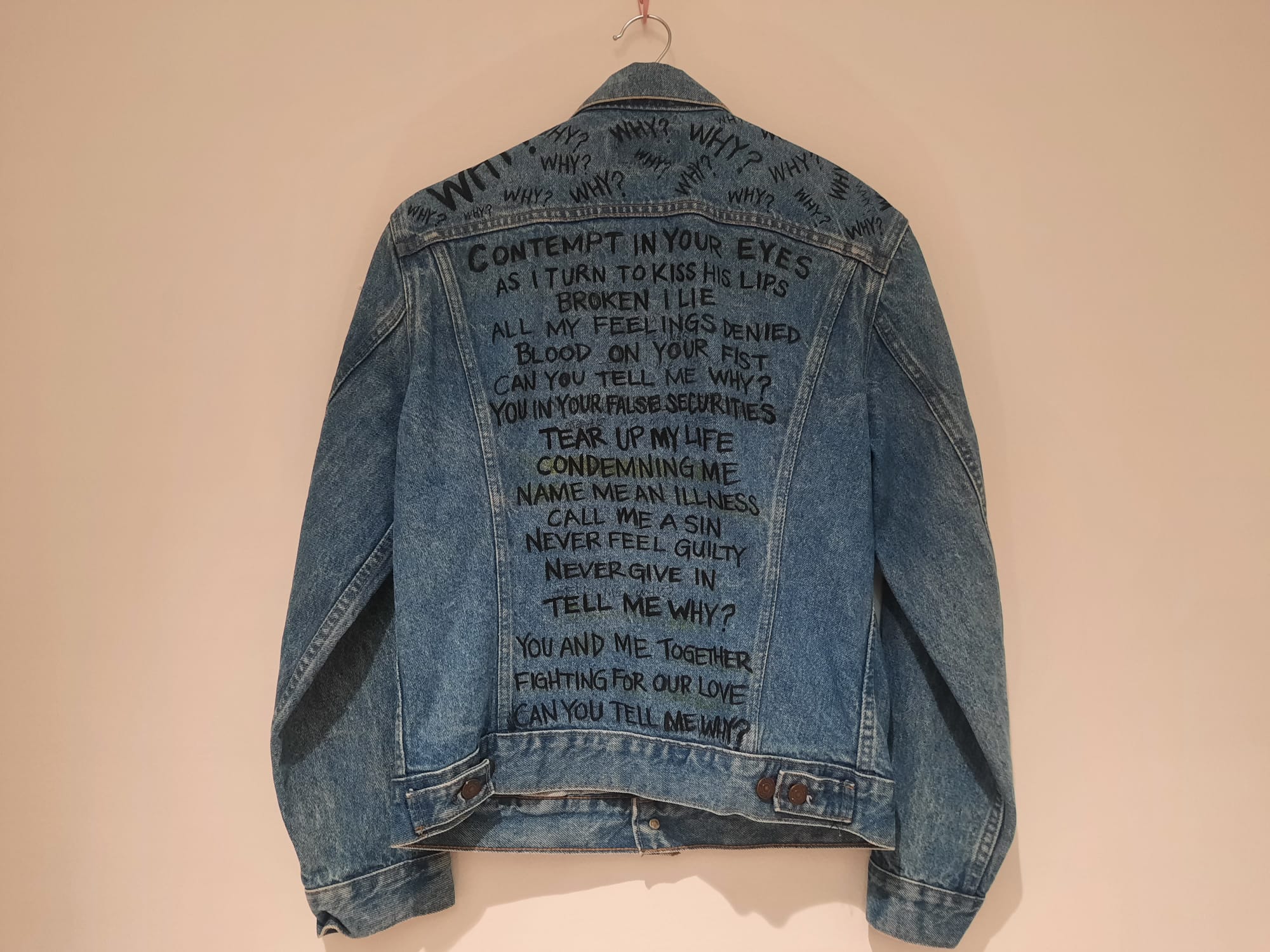Jimmy Somerville And Bronski Beat – Queer Britain, London
A small but interesting exhibition featuring some new donations to the Queer Britain collection, Jimmy Somerville and Bronski Beat is well worth a look if you’re in the King’s Cross cultural quarter.
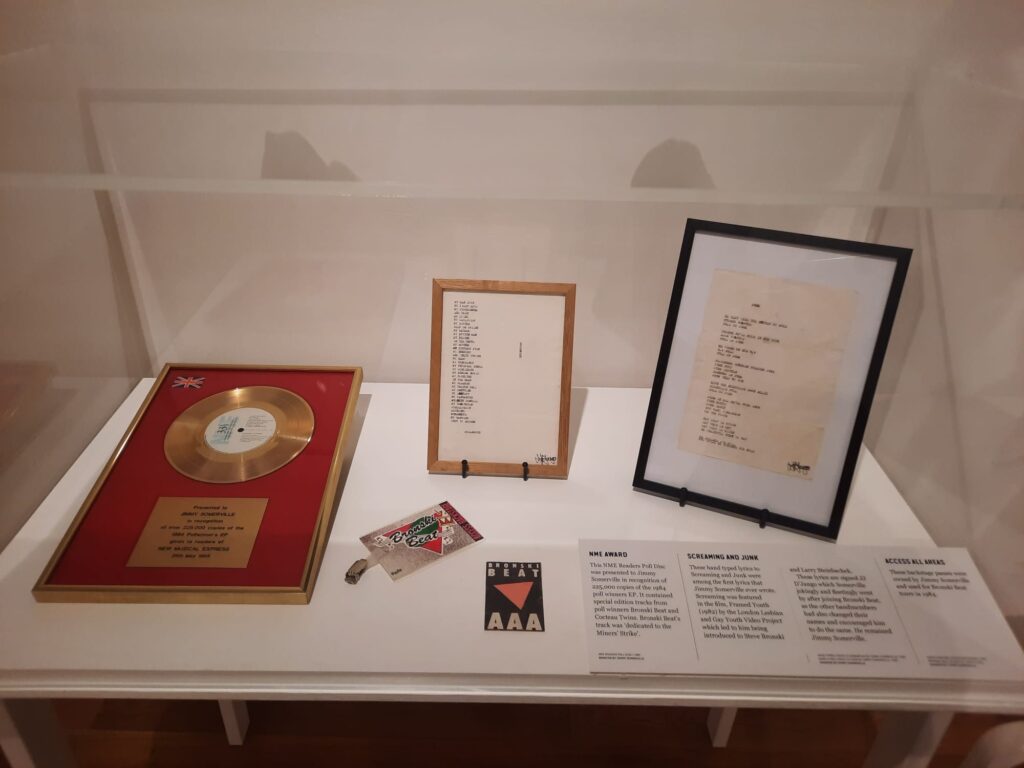
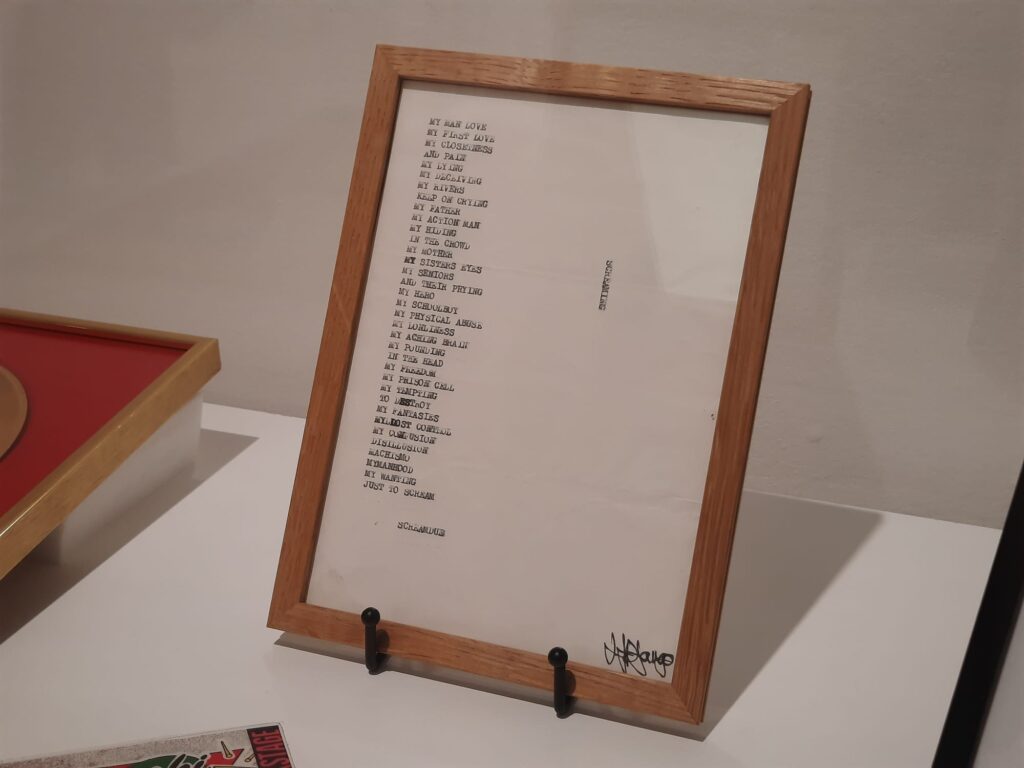
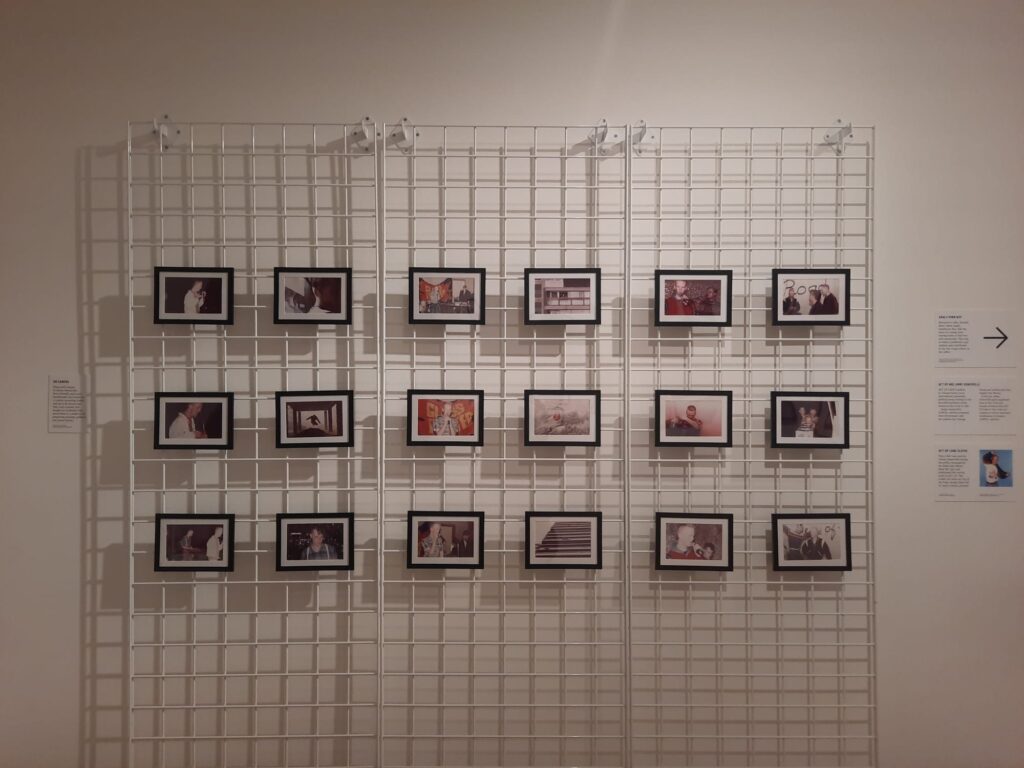
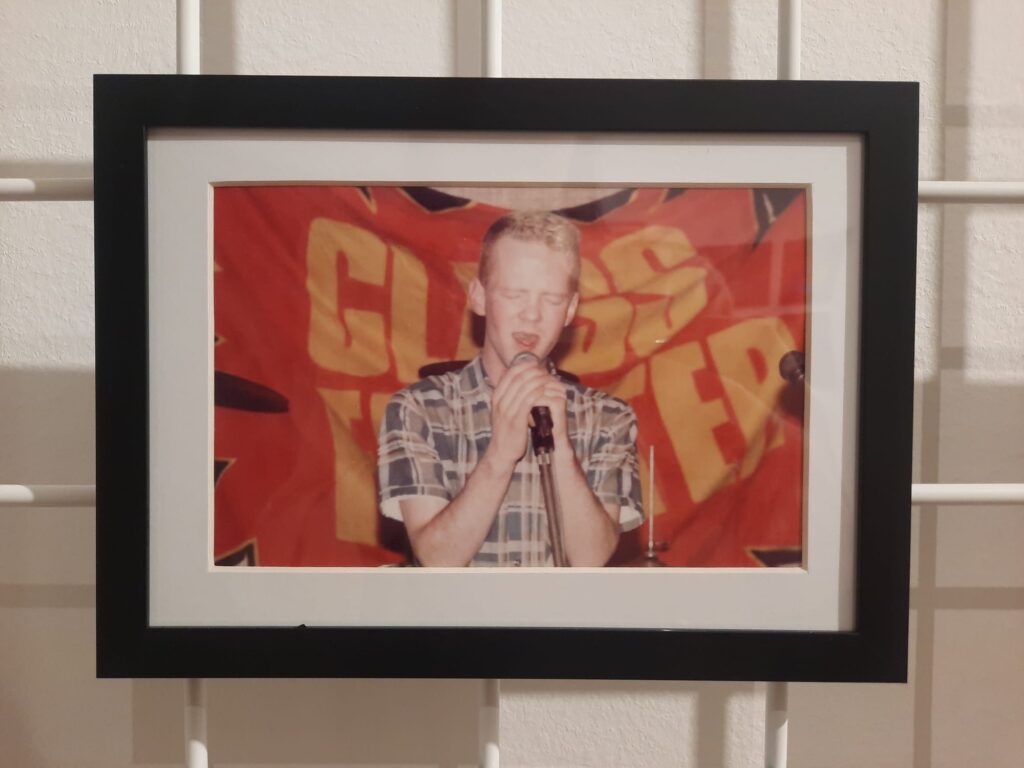
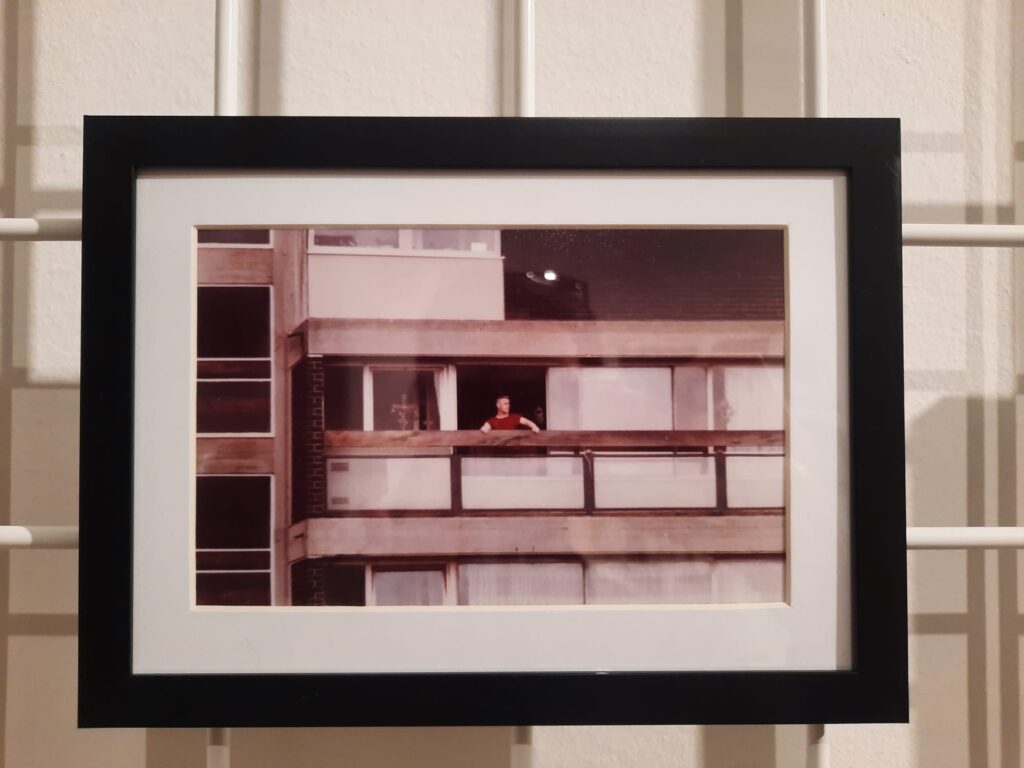
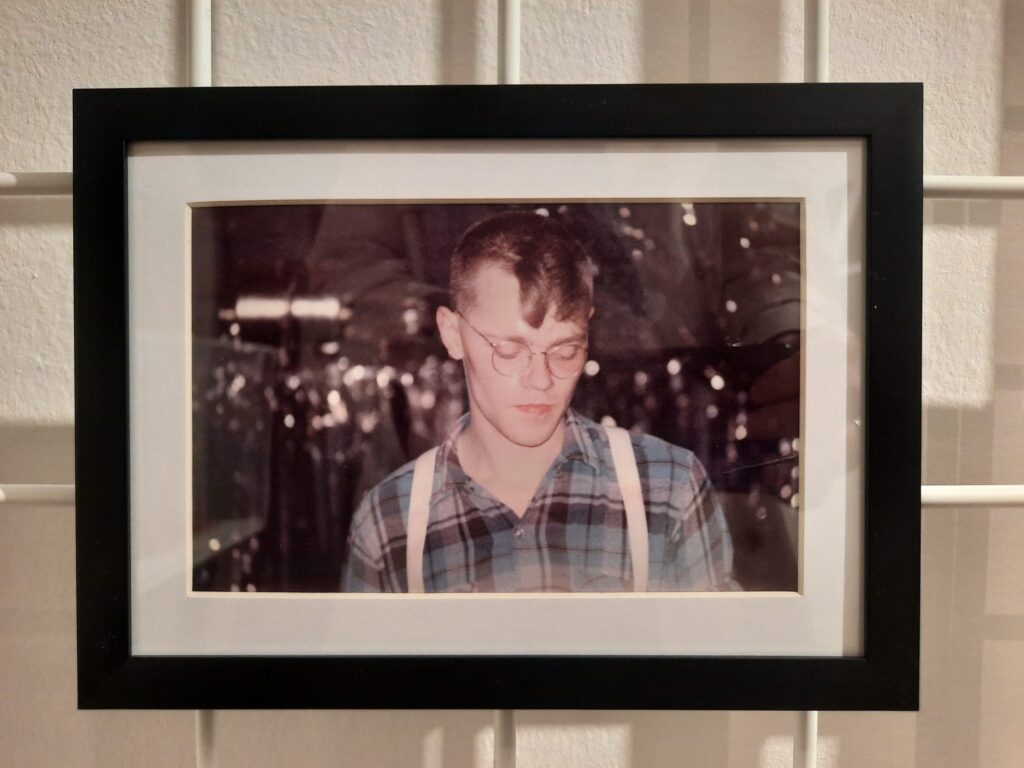
Jimmy Somerville and Bronski Beat
It’s not all that long since I last visited Queer Britain — you can read about that visit here. It’s a small but mighty institution: just a couple of rooms, but also the UK’s only permanent LGBTQ+ museum. So what brought me back so soon? I’d heard about Queer Britain’s temporary exhibitions and was curious to see what they had in store.
I’m hoping to return a few more times this year to see what else comes through. But the exhibition we’re talking about today is Jimmy Somerville and Bronski Beat. Bronski Beat, founded in 1983, has seen several lineup changes over the years, but the original members of this synth-pop group were Jimmy Somerville on vocals, with Steve Bronski and Larry Steinbachek on keyboards and percussion. Simon Davolls often contributed backing vocals. Their 1984 album The Age of Consent – the only one to feature Somerville before his departure in 1985 – includes iconic tracks like Smalltown Boy and Why?
From the start, Bronski Beat created music rooted in their identity and experience as gay men. And did so in a more explicitly political way than many LGBTQ+ performers of the time. Their songs confront homophobic prejudice head-on, and the album’s title, The Age of Consent, references the then-unequal legal age of consent: 16 for heterosexual relationships, 21 for gay men. Coming straight from the museum’s evolving permanent exhibition on 50 years of UK pride marches, Jimmy Somerville and Bronski Beat pulses with the politics and anxieties of the 1980s.
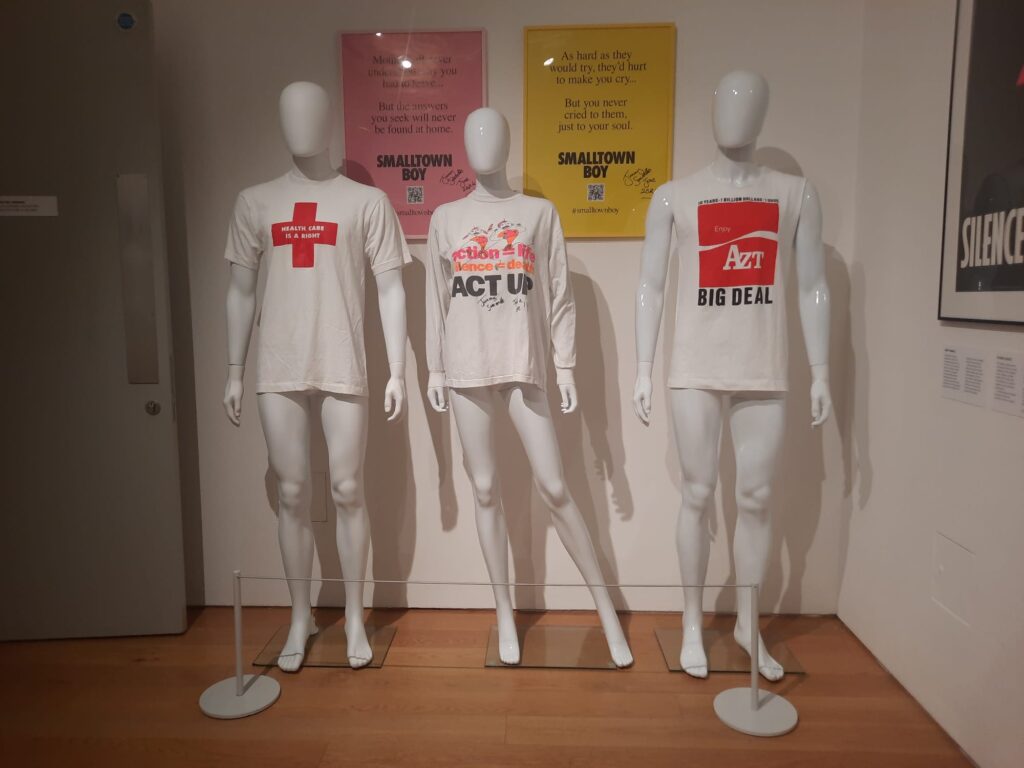

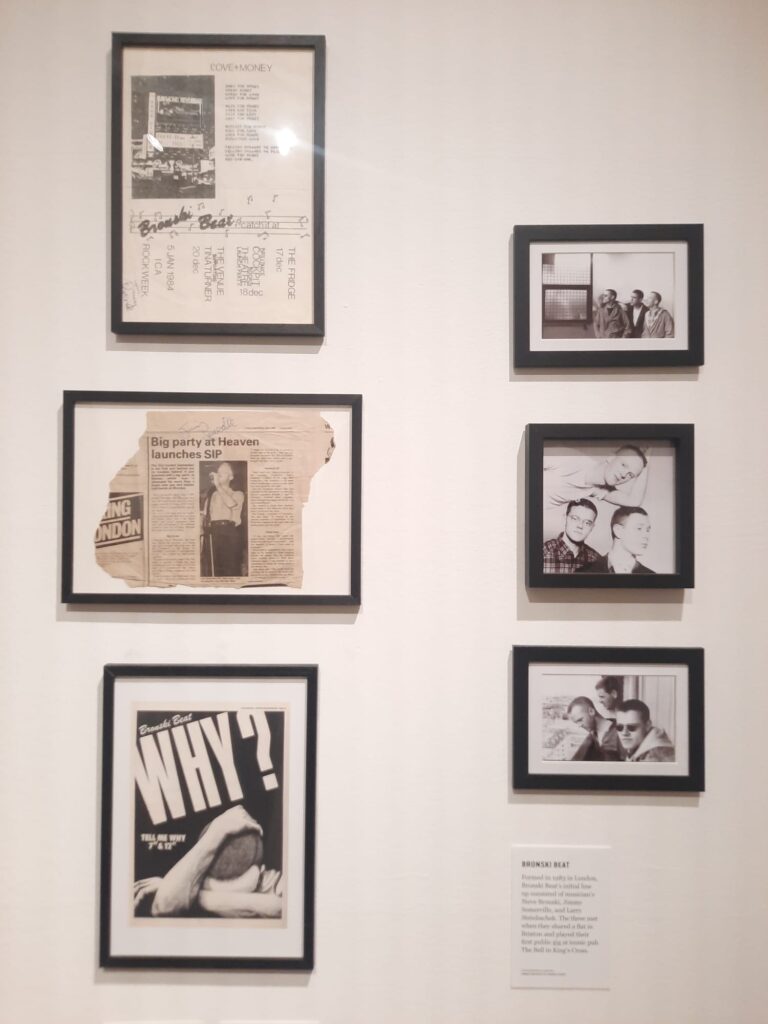
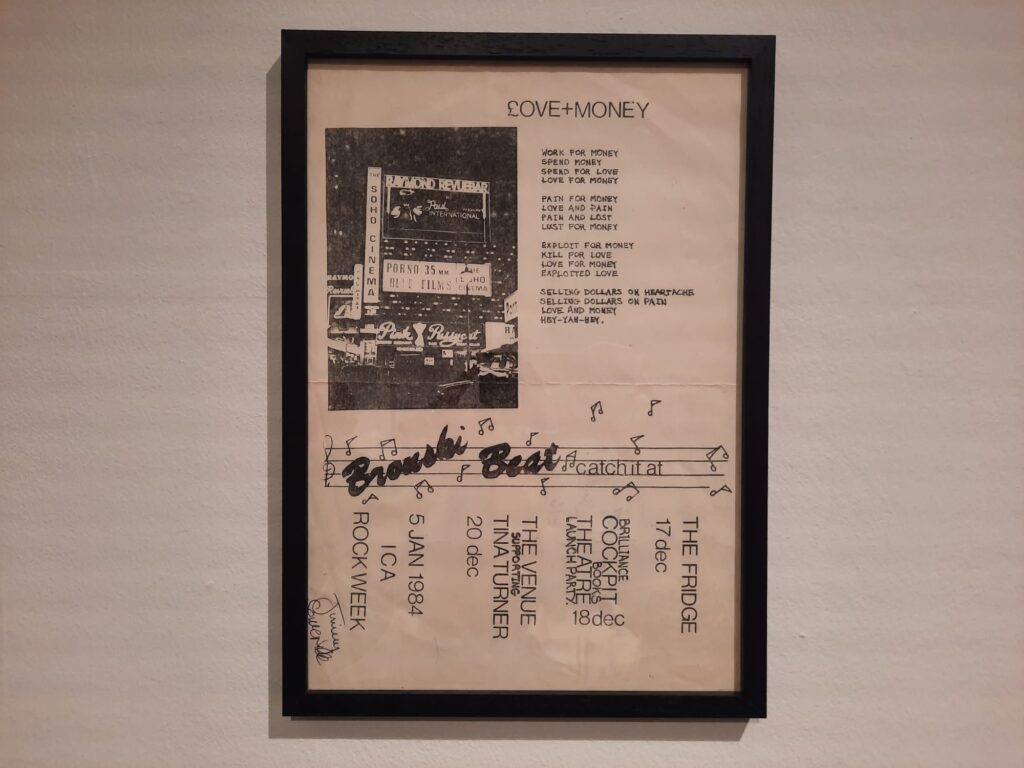
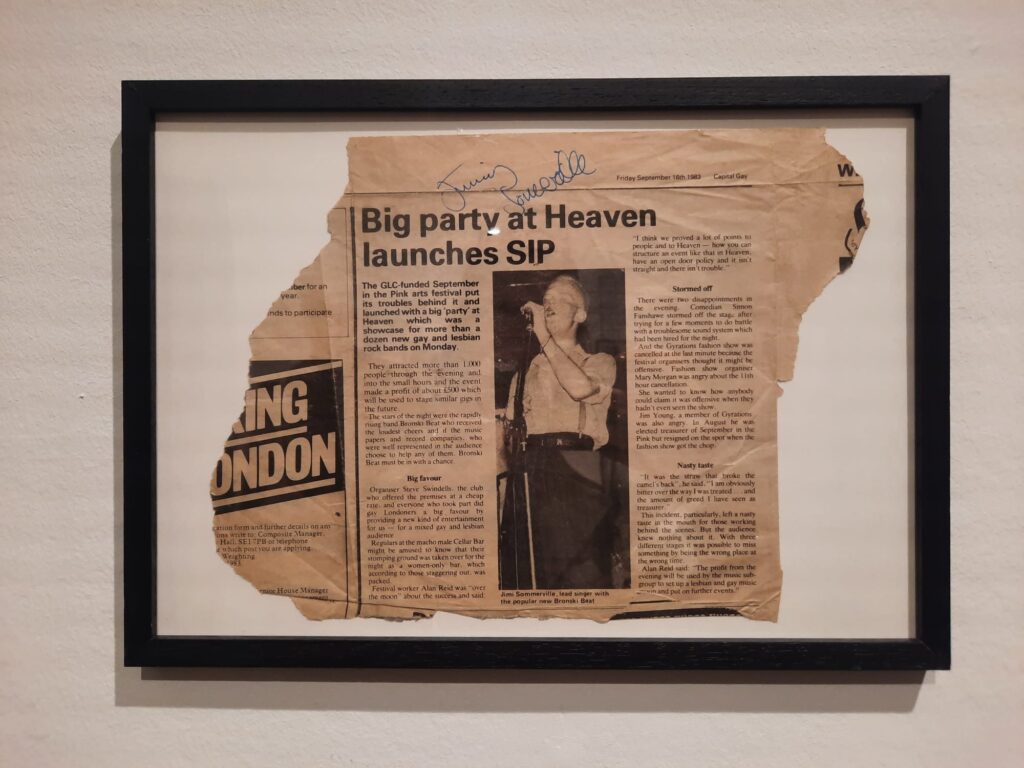
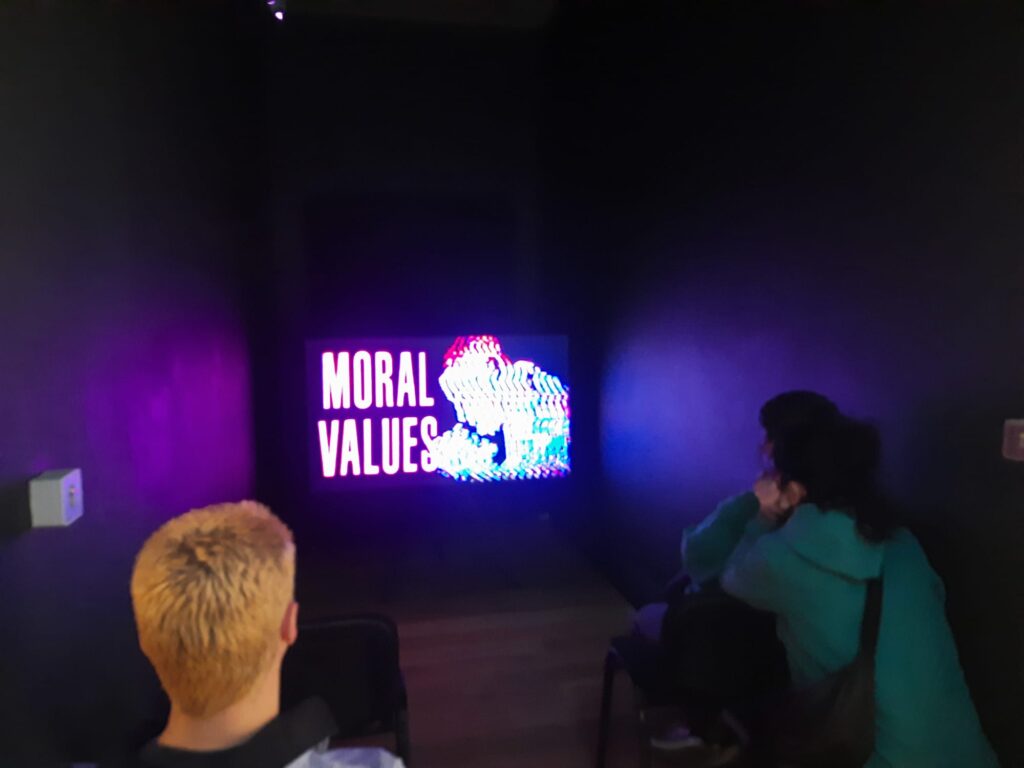
Echoes of the Past, Messages for Today
The exhibition itself is a mix of items donated by Somerville – including clothing, handwritten lyrics, an award, and an Age of Consent music book – alongside artefacts from Queer Britain’s collection. Plus a brilliant set of photographs by Hugues Ozouf, once destined for the bin in a London recording studio. The result is atmospheric, especially with music and audio drifting in from the next room, where Why?, a documentary made for the album’s 40th anniversary, plays on loop.
Seeing Somerville’s overtly political outfits – like the ACT UP shirt emblazoned with “action = life, silence = death” – is a stark reminder of just how much was at stake in the 1980s. The political response to the AIDS crisis was agonisingly slow, and homophobia shaped both public policy and private lives. Lyrics in Smalltown Boy like “Pushed around and kicked around, always a lonely boy / You were the one that they’d talk about around town as they put you down” capture the alienation so many queer people experienced – and still do.
Part of what makes a place like Queer Britain so important is its role in remembering and passing on the stories of generations who fought for LGBTQ+ rights and the freedom to live openly. While I was there, I overheard a family talking about the pink triangle: a symbol now less commonly seen, but hiding in plain sight on the Age of Consent album cover. (The other shapes were a compromise with the record label.) It’s wonderful to see public figures like Somerville supporting the museum and adding to its growing collection. Hopefully this donation will inspire others to come forward – and help the exhibition space continue telling the stories of those who used their voices to raise awareness and challenge discrimination.
Jimmy Somerville and Bronski Beat on until 25 May 2025. More info here.
Trending
If you see this after your page is loaded completely, leafletJS files are missing.

